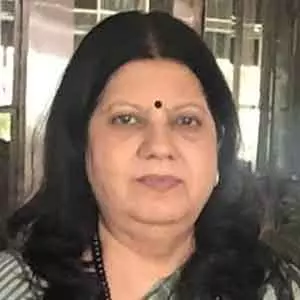Live
- Pakistan Protests: PTI Supporters March Towards Islamabad, Demanding Imran Khan's Release
- Additional Collector Conducts Surprise Visit to Boys' Hostel in Wanaparthy
- Punjab hikes maximum state-agreed price for sugarcane, highest in country
- Centre okays PAN 2.0 project worth Rs 1,435 crore to transform taxpayer registration
- Punjab minister opens development projects of Rs 120 crore in Ludhiana
- Cabinet approves Atal Innovation Mission 2.0 with Rs 2,750 crore outlay
- Centre okays Rs 3,689cr investment for 2 hydro electric projects in Arunachal
- IPL 2025 Auction: 13-year-old Vaibhav Suryavanshi becomes youngest player to be signed in tournament's history
- About 62 lakh foreign tourists arrived in India in 8 months this year: Govt
- IPL 2025 Auction: Gujarat bag Sherfane Rutherford for Rs 2.60 cr; Kolkata grab Manish Pandey for Rs 75 lakh
Just In

RS Passes Lokpal Bill, Lokpal Bill, Public-Private Partnership Under the Lokpal Purview. The Left’s amendment, which, insisted on bringing Public-Private Partnership (PPP) under the Lokpal purview, was defeated when it was put to vote, with 151 MPs voting against it and 19 for it, with 3 abstentions.
- LS to take up Bill today
- Bill passed unanimously by voice vote
- Anna thanks parliamentarians for passing the Bill
- PM calls it landmark legislation
- Even PM will come under the scrutiny of Lokpal
- CBI will also have a separate Director (prosecution)
- Sibal asks states to appoint Lokayuktas without delay
New Delhi: It was a historic day for Parliament, as the much-awaited Lokpal Bill was debated and passed unanimously in the Rajya Sabha by voice-vote. The anti-graft law provides for a Lokpal or national Ombudsman to investigate corruption charges against public functionaries.
The Left’s amendment, which, insisted on bringing Public-Private Partnership (PPP) under the Lokpal purview, was defeated when it was put to vote, with 151 MPs voting against it and 19 for it, with 3 abstentions.
Anna Hazare thanked the parliamentarians for passing the Bill and declared that he would end his fast after the Bill was passed in the Lok Sabha. The Prime Minister termed it as “landmark legislation.”
The Bill, after being cleared in the Lok Sabha, was stalled in the Upper House on December 29, 2011, where it was sent to the Select Committee, which produced a unanimous report, recommending several changes. After two years, the Bill, which was passed in the amended form in the Rajya Sabha on Tuesday, is expected to be passed in the Lower House on Wednesday, before it becomes an Act.
The Anna Hazare effect and the AAP impact was visible in the Rajya Sabha, as in the changed scenario, both the Congress and the BJP were seen hastening the process, congratulating each other for facilitating the debate and its passage. Ram Vilas Paswan of the LJP was quick to acknowledge that though he was opposed to the Bill, due to pressure from outside, he, too, was toeing the same line. Paswan, along with Akali Dal MP Naresh Gujral, opposed the provision of the Prime Minister being brought under the Lokpal. Paswan was the lone voice, who regretted the passage of the Bill, saying that it will demean parliamentary democracy.
He, however, blamed the legislators for lowering the dignity of the politicians by dubbing even the highest office-holders as thieves.
The multi-member Lokpal will have the authority to investigate charges even against the Prime Minister, besides the political class and other public functionaries. The Prime Minister, Chief Justice of India, Speaker and the Leader of Opposition together will pick an eminent jurist that completes the collegium for choosing the Lokpal. The appointment of the Lokpal will be done by the President. For the removal of Lokpal, an elaborate procedure has been prescribed, which requires 100 MPs to petition his removal. The President can suspend a Lokpal member on the recommendation or interim order of the Supreme Court. He can be removed by the President, after a Supreme Court inquiry.
As per the other provisions of the Lokpal Bill, the CBI will have separate Director (Prosecution), who will report to the CBI Director. The CBI Director (Prosecution) will be appointed on the recommendation of the Chief Vigilance Commissioner.
The CBI Director & Director (Prosecution) will have fixed term of two years. The transfer of the investigating officers will take place only after the approval of the Lokpal. 50 per cent of the Lokpal will comprise of minorities, SC/ST/OBC. Each State will have a Lokayukta within one year of the notification of the Lokpal Act.
Replying to the 5-hour debate, Union Law Minister Kapil Sibal requested all the States to appoint the Lokayukta soon, fearing that the whole purpose of the Bill would be lost, if the Chief Ministers dilly-dally on the issue.
He cautioned them that their laxity will be construed as double-speak, if they fail to appoint the same.

© 2024 Hyderabad Media House Limited/The Hans India. All rights reserved. Powered by hocalwire.com







